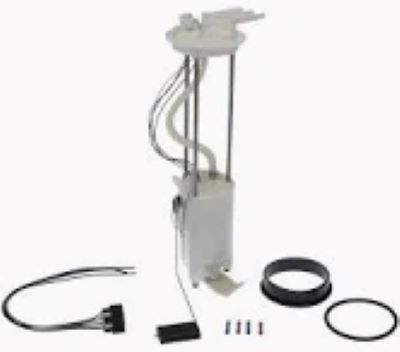However, one of the most common symptoms here is that a Fuel Pump turning on and off at random intervals can mean an issue occurring elsewhere in the fuel system or electrical circuits. One common reason is not enough voltage getting to the pump and supplying it with a steady diet of between 12-14 volts. The Fuel Pump is designed to operate continuously, but once the voltage falls below 12 volts it may not be able to provide constant operation and will gradually stop working intermittently. Voltage fluctuations occur when the battery is defective or the alternator lags, so inspecting these components ensures that the pump continues to work.
So Pay attention to this, and even a Clogged Fuel filter won't give you the power that it should. Over time, this added workload can cause the pump to overheat and initiate its in-built thermal protection which will switch off the pump for a short period of time until it sufficiently cools down so as not to heat again. When the pump stops at higher speeds, even if it does not stall completely (which could cause a crash), This changes how you feel relative to other cars on the road. Most auto mechanics recommend changing a car's fuel filter between 20,000 and 30,000 miles because it can prevent the Fuel Pump from going bad.
Issues with the Relay could also interupt Fuel Pump functionality. The fuel pump is powered by current, which must flow through a relay to power the pump. A failing relay will cause the engine not to work intermittently A malfunctioning relay such as one that has corroded or aged, may have less than consistent contact and thus present an open circuit to the pump; which unexpectedly turns off. Old fuel pump relays can become worn and not pass as much power, which increases the load on the ECU. Switching out a relay every five years or 50K miles will eliminate one cause of this problem from ever occurring
Yet another reason for sudden stops, this time burning of the Fuel Pump. If used in extreme high-heat conditions, the Fuel Pump can overheat during prolonged idling or stop-and-go traffic. Pump failure often occurs if overheating persists over time, and many pumps have an automatic shutdown function once temperatures reach predetermined levels. A quarter of a tank filled with gas keeps the pump cool and prevents it from overheating, putting you at risk to break down.

Low-grade fuel that contains contaminants can cause the Fuel Pump to perform erratically too. This subsequent clogs flex;accumulation of debris and silting within pump/filtration systems führtto flow-inhibiting congestion. Premium fuel can help lower the risk of sediment building up by 15%, which may prolong Fuel Pump life and keep steady fuel delivery in check. There are also some mechanics that recommend a fuel system cleaning every 60,000 miles and especially on cars used regularly in areas with weak grade gas.
Bad Wiring Bad wiring is another potential cause of this issue. A lack of power to the Fuel Pump (due to bad wiring connections or deteriorated wires) could cause it to fail as well. These interruptions can be solved by repairing or replacing wiring that has been damaged. Once the wiring is in place, it should be inspected every couple ofor years automotive experts say and more often if you have an older car that has aged-wiring.
Fuel pressure sensor problems could also cause the Fuel Pump to cycle on and off. The fuel pressure sensor serves to act as an observer and modulator of the system for values exceeding a threshold set by the electronic control unit (ECU). If the sensor completely glitches out, you get bad signals from this unit causing ECU simple to cut Fuel Pump operation. This includes pressure consistency -- hence the recommendation to replace sensors every 100,000 miles for performance vehicles.
When the problem occurs, it may cause a loss of momentum for two or more seconds and can really leave you out in no man's land when going on an extended journey. Checking the pump for voltage, changing fuel filters, and using good quality gas are all ways to prevent getting caught on the side of a road. Find out more about the right Fuel Pump solutions, including how to keep your fuel system in top form depending on vehicle type and requirement.
